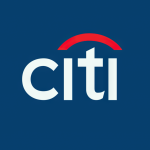Welcome to our dedicated page for Citigroup SEC filings (Ticker: C), a comprehensive resource for investors and traders seeking official regulatory documents including 10-K annual reports, 10-Q quarterly earnings, 8-K material events, and insider trading forms.
Struggling to pinpoint Citi’s credit card loss trends or Basel III capital ratios inside a 300-page report? Citigroup’s multifaceted global banking model makes its disclosures some of the most intricate on EDGAR. That’s why we start with the toughest question investors ask: “How do I find the numbers that move Citi’s stock without reading every footnote?”
Stock Titan’s AI-powered summaries turn complexity into clarity. From a Citigroup quarterly earnings report 10-Q filing to a sudden Citigroup 8-K material events explained, our engine highlights net interest margin swings, trading VaR shifts, and segment revenue in plain English. Need executive pay details? Jump straight to the Citigroup proxy statement executive compensation section, already parsed for total compensation and incentive metrics.
Coverage is complete and immediate. Receive Citigroup Form 4 insider transactions real-time alerts the moment insiders trade. Dive deeper with Citigroup insider trading Form 4 transactions dashboards that map buying versus selling before earnings. Our platform also links each Citigroup annual report 10-K simplified summary to prior years so you can track trend lines without spreadsheets.
Common investor tasks become simple:
- Compare card charge-offs quarter over quarter with one click.
- Spot regulatory capital changes in seconds, not hours.
- Flag Citigroup earnings report filing analysis before call transcripts are released.
Citigroup Inc. filed a Form 13F reporting holdings for the quarter ended 06-30-2025. The report discloses 15,854 separate information-table entries with a total reported market value of $203,588,923,980, and identifies 12 other included managers that are reported alongside the filing manager.
The list of other included managers names several Citigroup entities by name, including Citibank (Switzerland) AG, Citibank, N.A., Citicorp LLC, and others, indicating this filing aggregates holdings across multiple related reporting units. The filing is a standard 13F holdings report summarizing disclosed equity positions for the stated quarter.
Citigroup Global Markets Holdings Inc., guaranteed by Citigroup Inc., is offering Market-Linked Securities tied to the Nasdaq-100 Index® with a two-year tenor (issue: 16 Jul 2025; maturity: 15 Jul 2027) and a stated principal of $1,000 per note. The notes pay no periodic interest and are not listed on any exchange.
Return profile: at maturity investors receive (1) the principal plus 65.50 % of any positive index performance, or (2) principal reduced 1-for-1 by any negative performance, capped at a maximum loss of 10 % ($100). Thus, upside participation is partial while downside is buffered to –10 %.
Key economic terms: initial index level 22,829.26 (10 Jul 2025); valuation date 12 Jul 2027. Estimated value on the pricing date is $986.60, 1.34 % below issue price, reflecting structuring and hedging costs. Underwriter CGMI acts as principal and charges no explicit underwriting fee; total proceeds equal $1.05 million.
Risk considerations (select points from “Summary Risk Factors”): investors forgo dividends, face liquidity constraints because the notes are unlisted, and rely on the credit of both Citigroup Global Markets Holdings Inc. and Citigroup Inc. The value of the notes before maturity is sensitive to market factors and may be well below issue price. Tax counsel expects the notes to be treated as contingent payment debt instruments, requiring annual OID accrual.
- Issuer: Citigroup Global Markets Holdings Inc.
- Guarantee: Full and unconditional by Citigroup Inc.
- Upside participation: 65.50 %
- Maximum loss: 10 % of principal
- No coupons; contingent repayment only at maturity
- CUSIP/ISIN: 17333LKH7 / US17333LKH77
The product suits investors seeking limited downside buffer and modest leveraged exposure to the Nasdaq-100 over two years, and who can tolerate illiquidity, lack of income, and issuer credit risk.


